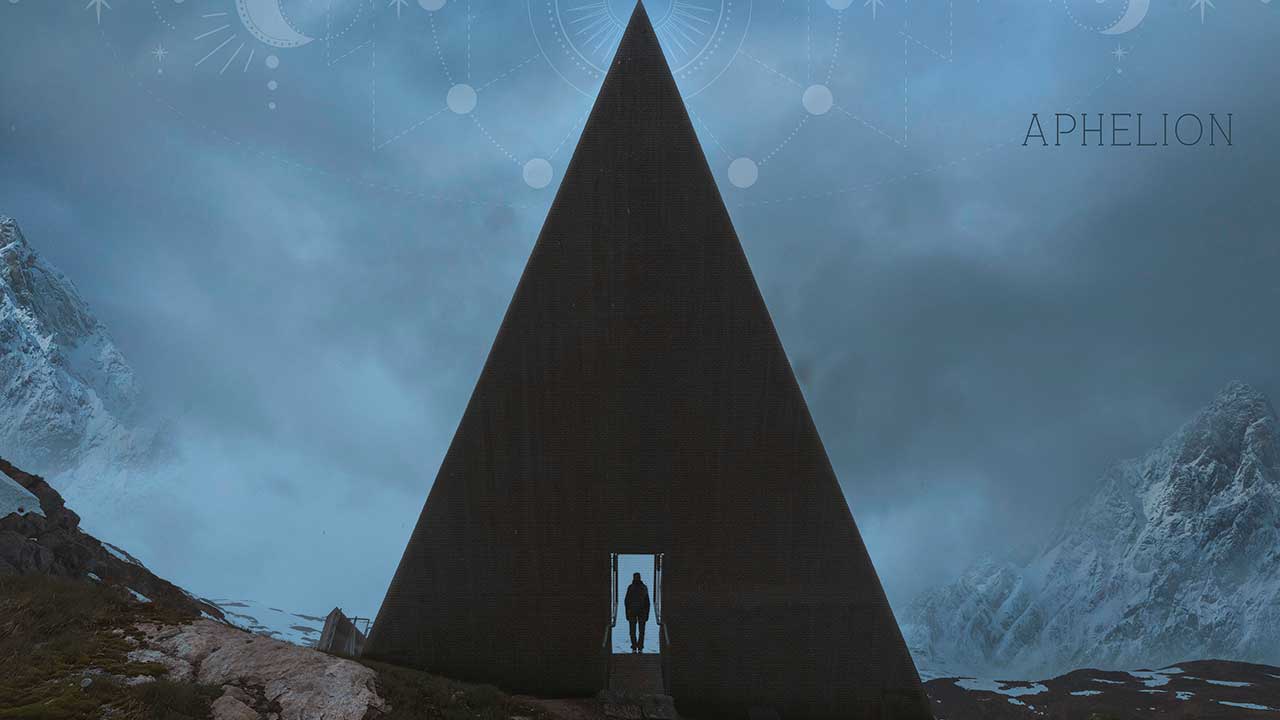In astronomical terms, the aphelion is the point in an orbit where an object reaches the furthest point from the Sun, either plunging into the void, or swinging back towards the light. Leprous’ Einar Solberg used 2019’s Pitfalls to chronicle his struggles with mental health. With Aphelion, he’s still grappling with his demons, but there’s a defiant sense of clawing up from the depths.
Although Leprous started their musical journey in progressive metal, there’s less of the metal and more of the progressive in evidence here. But the Norwegians aren’t about to pile on the Mellotrons or vintage production techniques; on Aphelion they display a distinctly modern sensibility as they continue to explore the use of strings and electronics that marked Pitfalls. The first and last tracks on the album, Running Low and Nighttime Disguise, feature a Norwegian brass group called Blåsemafiaen, which introduces another texture to their soundscapes.
At times the arrangements can be starkly sparse, leaving Solberg’s confessional vocals quite exposed. His performance is one of bold vulnerability as his pours out his emotions, trapped by doubts in On Hold, or pleading ‘I can never be alone’ in Out Of Here. While the vocalist favours falsetto, there’s great depth to his range. His delivery can be tremulous and delicate, desperate and raw, or ecstatic. The music is no less diverse or expressive either. Out Of Here begins with a pulsing synthesiser and a simple processed drum beat that suggests trance-inducing trip hop, but then the band surge in to launch the chorus as Solberg reaches into his upper register.
There’s a hip hop beat to begin Silhouette, which draws on synthwave, and features a fractured breakdown where the off-kilter drums play against a staggering keyboard. Drummer Baard Kolstad is a creative, adaptive player, and there’s an unusual contrast between his nimble grooves and the fat, heavy sound of his kit. The Silent Revelation has a funky, choppy guitar lick, contrasted against moments of swirling keys as Solberg emotes his anguish. Nighttime Disguise is as heavy as the album gets, with punchy, djent-style syncopation, but the guitar tone is still surprisingly light on distortion, even with the drop-tuning.
With Aphelion, Leprous have cast off the last vestiges of progressive metal. The album touches on prog, djent, pop, funk, trip hop and electronica, but the result is much greater than the sum of its parts. Nobody else sounds like this: Leprous have entered uncharted territory, proving utterly fearless in the process.

